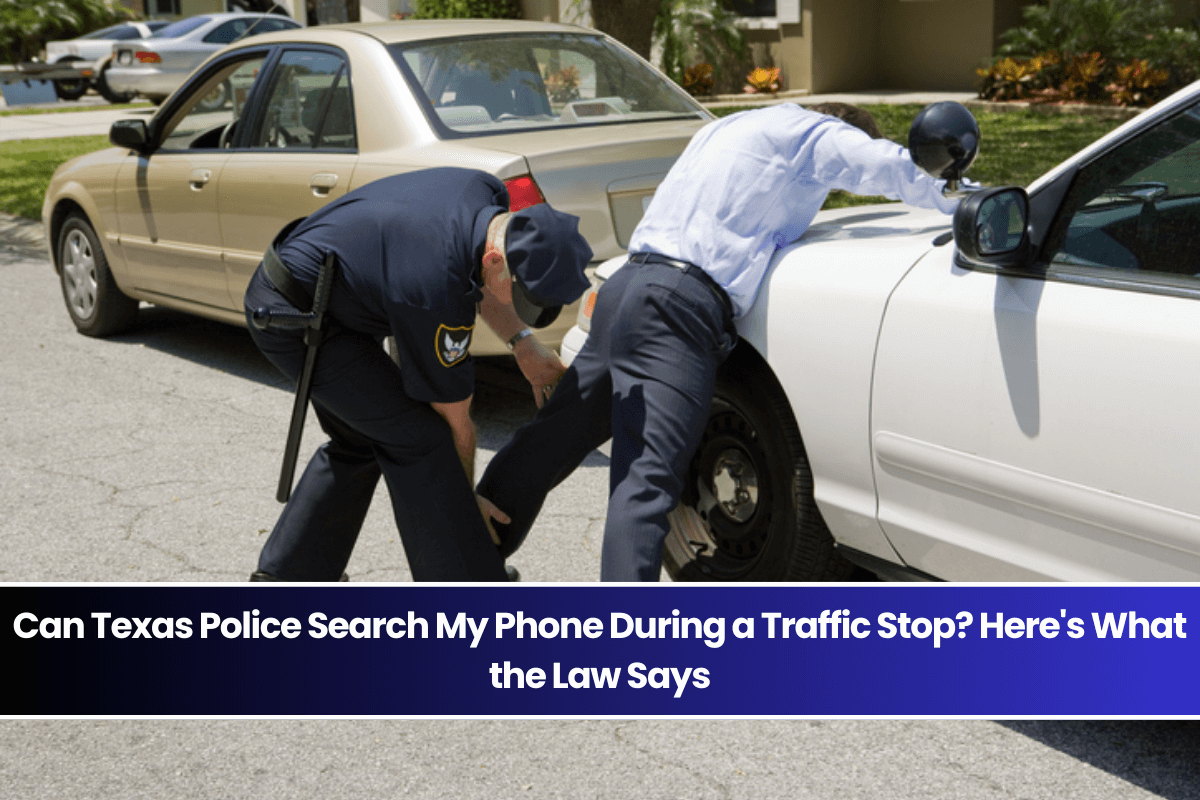In Texas, the legality of police searching your phone during a traffic stop is governed by the Fourth Amendment of the U.S.
Constitution and Article I, Section 9 of the Texas Constitution, which protect individuals from unreasonable searches and seizures. Here’s what you need to know about the circumstances under which police can search your phone.
General Rule: Warrant Requirement
In most cases, police officers must obtain a search warrant to search your phone, even if you are arrested.
This principle was solidified by various court rulings, including the Texas Court of Criminal Appeals’ decision in State v. Granville, which affirmed that individuals have a reasonable expectation of privacy concerning their phone contents. The court ruled that police cannot search a phone without either a warrant or exigent circumstances.
Key Points:
- Expectation of Privacy: The contents of your phone are considered private information, similar to documents stored in a desk or cabinet.
- Warrant Requirement: Police must secure a warrant before searching your phone unless specific exceptions apply.
Exceptions to the Warrant Requirement
While the warrant requirement is strict, there are certain exceptions where police may conduct a warrantless search:
- Consent: If you voluntarily consent to the search of your phone, police can proceed without a warrant. However, it is generally advisable to refuse consent if you are unsure about the implications.
- Exigent Circumstances: Police may search your phone without a warrant if they believe that waiting for a warrant would lead to:
- Imminent danger to life or safety.
- The destruction of evidence.
- The escape of a suspect.
However, these situations are rare and must be clearly justified by law enforcement.
- Arrest-Related Searches: If you are arrested, police can search items immediately associated with you (like your pockets) but still typically require a warrant to access your phone’s contents.
Specific Legal Cases
The case of State v. Granville serves as an important precedent. In this case, an individual was arrested for a disturbance, and police searched his phone without a warrant or exigent circumstances.
The court ruled that this search violated his Fourth Amendment rights because there was no immediate threat or evidence destruction that justified bypassing the warrant requirement.
Relevant Legal Provisions
According to the Texas Code of Criminal Procedure, officers must apply for a warrant as soon as practicable after conducting any search under exigent circumstances.
If they fail to prove that exigent circumstances existed, any evidence obtained from such searches may be deemed inadmissible in court.
Practical Implications for Individuals
If you find yourself in a situation where law enforcement asks to search your phone during a traffic stop:
- Know Your Rights: You have the right to refuse consent for a search.
- Stay Calm and Respectful: Politely inform officers that you do not consent to the search.
- Document the Encounter: If possible, take note of details regarding the interaction for future reference.
Conclusion
In summary, Texas law generally requires police to obtain a warrant before searching your phone during a traffic stop or after an arrest.
Exceptions exist for consent and exigent circumstances; however, these are narrowly defined and rarely applicable. Understanding these legal protections is crucial for safeguarding your privacy rights in interactions with law enforcement.
If you believe your rights have been violated during such encounters, consulting with an attorney experienced in criminal defense can provide guidance on how to proceed.
Sources
- https://www.robertguest.com/privacy-concerns-of-cell-phone-searches.html
- https://www.theshapirolawfirm.com/blog/2023/04/can-police-search-my-phone-without-a-warrant/
- https://versustexas.com/blog/can-police-search-my-phone/
- https://statutes.capitol.texas.gov/Docs/CR/htm/CR.18.htm
- https://www.pitoniaklaw.com/faq/can-police-search-your-phone-in-texas/
